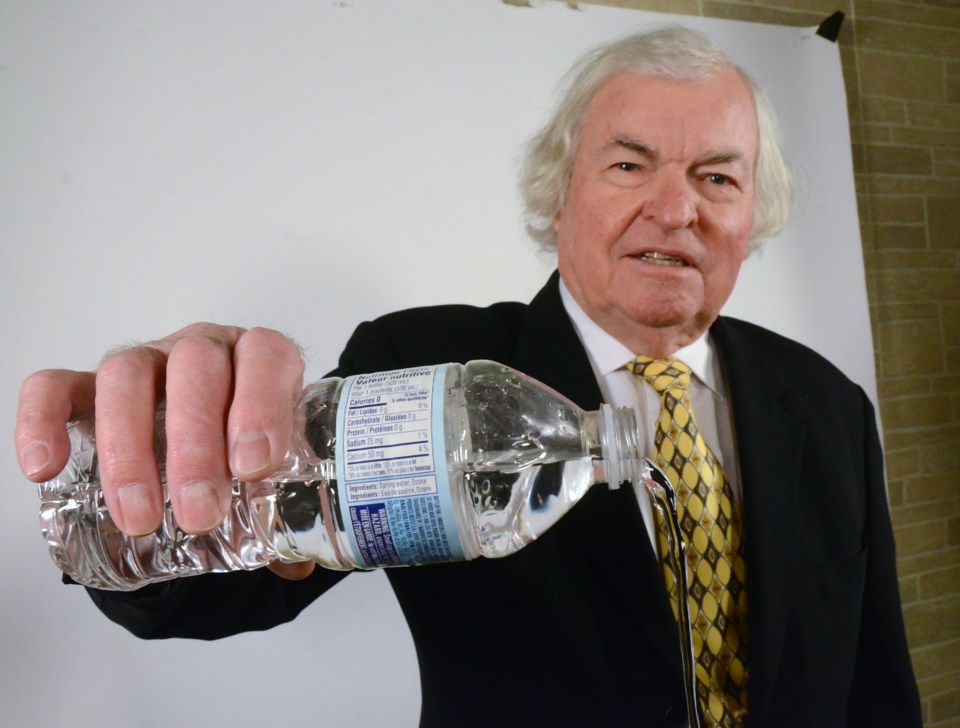When it comes to the cost of water, Greater Sudbury has been doing a balancing act for the last number of years.
Mandated by the province to make the system pay for itself, city council has raised rates by 7.4 per cent each of the last four years. It's part of a long-term plan Greater Sudbury has to prepare every decade, outlining how the system will eventually become self-sustaining.
It's a balancing act for two reasons: one, such large increases are politically unpopular. In fact, this is the first city council to actually implement the increases. In the past, they were recommended by staff, but size of the increase was always less than recommended.
The second part of the balancing act is that, when you raise rates, consumption drops, which means water revenue estimates sometimes come in lower than forecast. Since the vast majority of costs in water and sewer are fixed – which means the costs are the same regardless of how much water we consume -- that puts more pressure on rates, as the city has less money to maintain the system.
And that's a problem, since a 2016 KPMG report estimated that capital work required for over the next 10 years is as much as $850 million, and into the billions longer term. Costs are higher in the city compared to most municipalities, KMPG concluded, in part because we have to maintain all the water works infrastructure inherited at amalgamation.
Greater Sudbury operates six water systems and 13 sewer systems, including 948 kilometres of water pipes and 777 kilometres of sewer pipe, serving 51,000 customers. By contrast, Toronto has four water systems for 1.3 million people, while Peel has five for 430,000.
Bob Tate, a retired Sudbury businessman, has spent the last 20 years as a member of EarthCare Sudbury and is, by his own admission, extremely interested in the city's waterworks.
Tate has been pushing for the creation of a water advisory board – a group he says would take the politics out of water and get serious about conservation. He sent the city a lengthy submission when the water master plan was being developed, arguing it makes no sense to charge people the same rate no matter how much water they consume.
“The demand side management is a core concept that should be should be developed,” Tate said in an interview last week. “If you install a swimming pool, why should you be paying (the same) amount for water — especially during the summer months when production is at a problem – as someone else who is conserving water?”
Along with re-lining as much of the old pipes as possible to reduce water lost to leakage – a major problem in Sudbury – Tate says as much as half or more of the $1.3 billion needed in the coming decades could be avoided.
“The volume of water that would be made available if those two programs were in place would be enough to service 45,000 people,” he said. “I calculated that it's enough water to fill 1,500 Olympic-sized swimming pools. And if you put those pools back-to-back, you'd have an Olympic-sized pool from Sudbury to Espanola.”
Tate is aware of the issues such policies would cause – if successful, demand would drop to the point that rates would have to be hiked even more to make up for the lost revenue in water sales. So residents would be unhappy, and the city would have less money.
It would be worth it, Tate says.
“The bottom line is, we undervalue water,” he said. “Most people are paying less than a penny a litre on their bill. We're paying $1.09 for gasoline and it'll go up 10 cents. Well, if we put water up 10 cents, maybe we would have a better system.”
Bigger picture, Tate said, is the long-term impact on spending, where demand for water could be reduced to the point the city could save as much as $700 million in long-term capital costs.
That's the element of his proposals he argues the public will support – pay more now for an undervalued resource, and it will save everyone hundreds of millions of dollars in the long run.
And it will encourage residents to find ways to save water, so they can keep their bills as low as possible.
“Right now, we value gasoline more than we value water – and water is life,” Tate said. “I think the public will be more receptive to these kinds of things if it was explained to them in a different way.”
Using more rain barrels, low flush toilets, shorter showers – there are many ways to conserve water, Tate said, for people worried about higher rates. And residents who have swimming pools can likely afford to pay more – but they don't have to. It's an optional expense. But other residents shouldn't subsidize the cost of water so someone can have a pool at a lower cost.
Considering how unpopular some of his ideas are likely to be with voters, Tate says a water conservation board would be key, so the decisions wouldn't be such a political football.
“My long-term view is that water is too important to subject to be put in the hands of politicians and bureaucrats alone,” he said. “The people should also be involved. So my bottom line is I think that the system in Sudbury should be under a water advisory board, just like a police board or the Greater Sudbury Utilities, so that it takes it away from the political side of things.”
A meeting is planned next month where councillors will get an update on the water/sewer system in the city, as well as the preparations for the next long-term plan to maintain the system.
